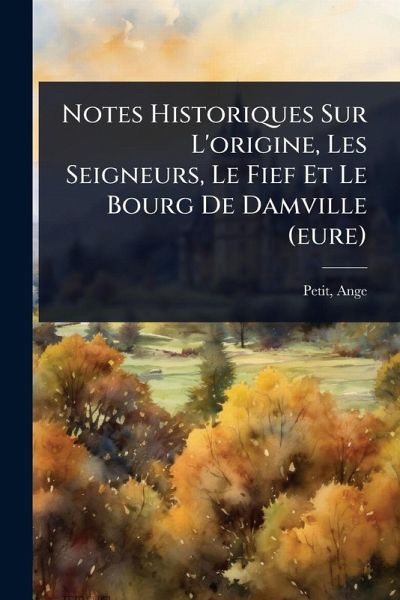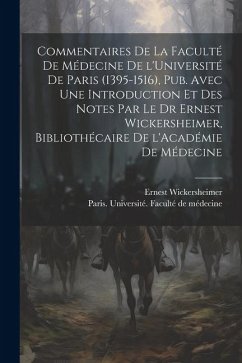
Notes Historiques Sur L'origine, Les Seigneurs, Le Fief Et Le Bourg De Damville (eure)

PAYBACK Punkte
9 °P sammeln!
Notes Historiques Sur L'origine, Les Seigneurs, Le Fief Et Le Bourg De Damville (eure) explores the history of Damville, a town in the Eure department of France. Ange Petit delves into the origins of Damville, examining its lords, feudal system, and the development of the town itself. This meticulously researched work offers insights into the medieval and early modern periods, shedding light on the social, economic, and political structures that shaped the region. It will be of interest to historians, genealogists, and anyone interested in the local history of France. This work has been select...
Notes Historiques Sur L'origine, Les Seigneurs, Le Fief Et Le Bourg De Damville (eure) explores the history of Damville, a town in the Eure department of France. Ange Petit delves into the origins of Damville, examining its lords, feudal system, and the development of the town itself. This meticulously researched work offers insights into the medieval and early modern periods, shedding light on the social, economic, and political structures that shaped the region. It will be of interest to historians, genealogists, and anyone interested in the local history of France. This work has been selected by scholars as being culturally important, and is part of the knowledge base of civilization as we know it. This work was reproduced from the original artifact, and remains as true to the original work as possible. Therefore, you will see the original copyright references, library stamps (as most of these works have been housed in our most important libraries around the world), and other notations in the work. This work is in the public domain in the United States of America, and possibly other nations. Within the United States, you may freely copy and distribute this work, as no entity (individual or corporate) has a copyright on the body of the work. As a reproduction of a historical artifact, this work may contain missing or blurred pages, poor pictures, errant marks, etc. Scholars believe, and we concur, that this work is important enough to be preserved, reproduced, and made generally available to the public. We appreciate your support of the preservation process, and thank you for being an important part of keeping this knowledge alive and relevant.












